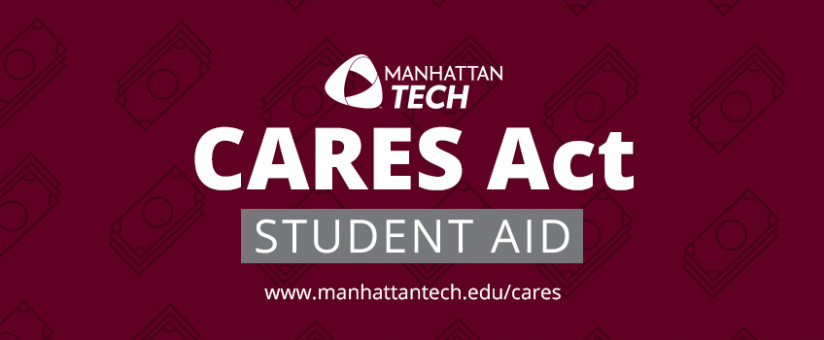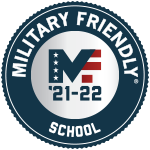HEERF Reporting
ARP (HEERF III)
Manhattan Area Technical College signed and returned a Certification and Agreement with the Department of Education to receive funds that had been awarded under Section 2003(a)(1) of the American Rescue Plan (ARP). In accordance with that document, Manhattan Tech will utilize no less than $712,347 received under ARP for Emergency Financial Aid Grants to students.
As of 1/25/22, $414,190 has been distributed to 380 students.
As of 9/19/22, $673,940 has been distributed to 504 students.
As of 12/13/22, $712,347 has been distributed to 574 students.
Federal HEERF III funds were initially expended via block grants to undergraduate and withdrawn students that had submitted a FAFSA. For these students, grant awards were tiered based on the student’s Pell eligibility determined by EFC and level of enrollment. Funds were then made available via block grants to undergraduate, non-degree, and withdrawn students who were not Pell-eligible or did not complete the FAFSA. These grants were also tiered based on the student’s level of enrollment.
Students with balances on their accounts were given the opportunity to complete an authorization form to apply their student grant funds to the balance with the caveat they were under no obligation to do so.
Students who received HEERF III emergency grants received emails that contained the following statement: “Your disbursement check has been mailed out today, Monday, February 7, 2022.
The funds are paid directly to you by check, leaving the financial obligation, if any, on your Student Account still due.
You received a federal COVID-related grant as a result of your attendance at Manhattan Area Technical College during the Fall 2021 semester. The Higher Education Emergency Relief Funds III (HEERF III) were created under the American Rescue Plan.
The money can be used for:
- Any component of your cost of attendance (tuition, housing, food, health care, child care, transportation, supplies, etc.)
- Emergency costs that arise due to coronavirus, such as tuition; food; housing; health care (including mental); child care”
An estimated 550 students at Manhattan Tech may be eligible to receive a HEERF II grant.
CRRSA ACT (HEERF II)
Manhattan Area Technical College signed and returned a Certification and Agreement with the Department of Education to receive funds that had been awarded under Section 314(a)(1) of the Coronavirus Response and Relief Supplemental Appropriations Act (CRRSAA). In accordance with that document, Manhattan Tech utilized no less than $184,921 received under CRRSAA for Emergency Financial Aid Grants to students.
As of 5/27/21, $184,921 was distributed to 180 students. This is the final report and covers all remaining HEERF II (CRRSAA) fund expenditures for the Section 314(a)(1) Student Portion funds.
Federal HEERF II funds were initially expended via block grants to undergraduate and withdrawn students that had submitted a FAFSA. For these students, grant awards were tiered based on the student’s Pell eligibility determined by EFC and level of enrollment. The remaining funds were then made available via a secure online application. These grants were a flat dollar amount.
Students with balances on their accounts were given the opportunity to complete an authorization form to apply their student grant funds to the balance with the caveat they were under no obligation to do so.
Students who received HEERF II emergency grants received emails that contained the following statement: “The CRRSA Act requires Manhattan Tech to provide the grant amount directly to students. The institution may not use any portion of your grant to satisfy an outstanding account balance. As a result, you may still owe the College a balance. Please review your Student Account on MATC Online to determine if you have a balance.
The CRRSA Act expressly requires that the emergency financial aid grants to students be used for expenses related to the disruption of campus operations due to coronavirus. You may use the grant money for eligible expenses under your cost of attendance, such as food, housing, course materials, technology, health care, and childcare.”
An estimated 425 students at Manhattan Tech may have been eligible to receive a HEERF II grant.
CARES ACT (HEERF I)
In April of 2020, Manhattan Area Technical College signed and returned to the Department of Education the Certification and Agreement form regarding the Emergency Financial Aid Grants to Students under the CARES Act. In accordance with the form, Manhattan Tech utilized no less than 50 percent of the funds received under Section 18004(a)(1) of the CARES Act to provide Emergency Financial Aid Grants to students. Manhattan Tech received $184,921 from the Department of Education for the purposes of the student grants.
As of 7/20/20, $184,921 has been distributed to 123 students. This is the final report and covers all remaining HEERF I (CARES Act) fund expenditures for Section 18004(a)(1) Student Portion funds.
An estimated 400 students at Manhattan Tech may have been eligible to participate in programs under Section 484 in Title IV of the Higher Education Act of 1965 and thus eligible to receive Emergency Financial Aid Grants to students under Section 18004(a)(1) of the CARES Act.
For HEERF I, Manhattan Tech created a secure online application for students to provide information regarding eligible expenses experienced that were related to the disruption of campus operations due to the coronavirus. Students logged into the application using their individual College credentials. Students were able to indicate categories of unexpected expenses experienced. These categories include:
Unexpected food/grocery expenses
Housing (unexpected changes in rent or utilities such as water, electricity, heat, cell phone, etc.)
Course materials (educational software, additional course resources, etc.)
Technology (unplanned laptop/tablet, WiFi, booster, other internet-related expense)
Health care not covered by health insurance related to disruption of campus operations
Unexpected childcare
Other
Priority of grant funding for HEERF I:
- Applicants who were Title IV eligible (have a FAFSA on file with Manhattan Tech). Priority was given to students with an EFC of 0-5576 while degree-seeking and enrolled at least half-time.
- Applicants who were Title IV eligible (have a FAFSA on file with Manhattan Tech) degree-seeking students enrolled less than half-time. Priority was given to students with an EFC of 0-5576.
- Dental Hygiene student applicants were awarded the equivalent of a two-month allowance for room & board, transportation, and miscellaneous costs in consideration of the extension of time necessary to safely reopen the dental clinic and for students to complete clinical hours.
- Applicants who did not complete the FAFSA with a or were not degree or certificate-seeking in a Title IV eligible program. (This category is not eligible effective with the publication of the Department of Education's June 17, 2020 Interim Final Rule.)
Awards were evaluated in the order application was submitted. Individual awards will not exceed the maximum Federal Pell Grant for the applicable award year.
Emergency financial aid grants were paid directly to students for their expenses related to the disruption of campus operations due to coronavirus, such as food, housing, course materials, technology, health care, and child-care expenses.
Students who received CARES Act Emergency grants received emails that contained the following statement: “The CARES Act requires Manhattan Tech to provide the grant amount directly to students. The institution may not use any portion of your grant to satisfy an outstanding account balance. As a result, you may still owe the College a balance. Please review your Student Account on MATC Online to determine if you have a balance.
The CARES Act expressly requires that the emergency financial aid grants to students be used for expenses related to the disruption of campus operations due to coronavirus. You may use the grant money for eligible expenses under your cost of attendance, such as food, housing, course materials, technology, health care, and childcare.”
Downloads
 Manhattan Tech 3Q 2020 HEERF Reporting
Manhattan Tech 3Q 2020 HEERF Reporting Manhattan Tech 4Q 2020 HEERF Reporting
Manhattan Tech 4Q 2020 HEERF Reporting Manhattan Tech 1Q 2021 HEERF Reporting
Manhattan Tech 1Q 2021 HEERF Reporting Manhattan Tech 2Q 2021 HEERF Reporting
Manhattan Tech 2Q 2021 HEERF Reporting Manhattan Tech 3Q 2021 HEERF Reporting
Manhattan Tech 3Q 2021 HEERF Reporting Manhattan Tech 4Q 2021 HEERF Reporting
Manhattan Tech 4Q 2021 HEERF Reporting Manhattan Tech 1Q 2022 HEERF Reporting
Manhattan Tech 1Q 2022 HEERF Reporting Manhattan Tech 2Q 2022 HEERF Reporting
Manhattan Tech 2Q 2022 HEERF Reporting Manhattan Tech 3Q 2022 HEERF Reporting
Manhattan Tech 3Q 2022 HEERF Reporting Manhattan Tech 4Q 2022 HEERF Reporting
Manhattan Tech 4Q 2022 HEERF Reporting




